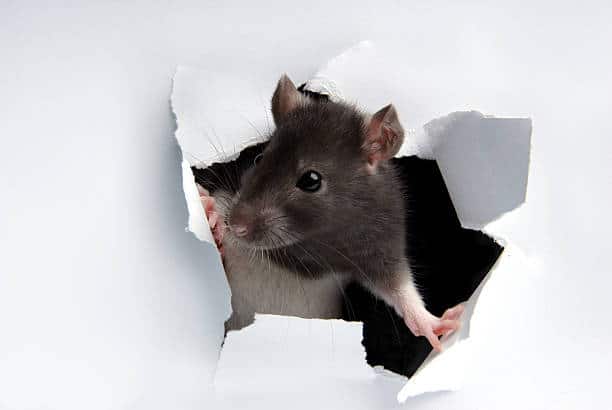Have you been hearing scrabbling noises inside the walls of your home at night? Does it sound like something could be gnawing on the walls? You could have a rodent, or family of rodents, living in your house! Small rodents, such as mice, rats, and squirrels are common household invaders here in St. Louis. Unlike humans, rodents can’t throw on a winter coat when it gets cold outside, so they begin looking in the fall for a warm place to live. Oftentimes the warm place that rodents find is inside our homes. If you suspect there may be a rodent inside your home, here are a few signs to look for:
Rodent droppings – Mouse droppings will be about ¼ long, black, and oval-shaped. Rat, squirrel, and chipmunk droppings look very similar but are larger.
Chew marks – Rodents have two front teeth that never stop growing. To keep them short they have to constantly chew. Look for gnaw marks on corners of walls, furniture, books, boxes, and even clothing.
Nests – Rodent nests are generally found in low-traffic areas but also near sources of food. This is often inside walls, in attics or basements, and under or behind kitchen appliances such as the refrigerator or stove. Nests are usually made of easily shredded materials such as cardboard, newspapers, or magazines.
Rub marks – Did you know the rub marks that come off are rodent sebum? Rodents are creatures of habit. They almost always travel the same paths to a food source and back to their nest. After some time, these runways become worn down and visible. Look for runways on the ground along walls.
Once they are in your home they are very hard to get rid of. The most effective method of rodent control is prevention. Try to prevent an infestation in the first place by doing the following:
-
Eliminate all entry points. Check for rips in door and window screens, gaps around window frames, and cracks or crevices in the foundation. A mouse is a small creature that only needs an opening the size of a quarter-inch to gain access to your home.
-
Eliminate food sources. Make sure the kitchen sink is cleaned out each night and store food in airtight containers. Also, rodents love seeds. Make sure any bird seeds are stored in a container with a tightly fitting lid.
-
Organize cluttered areas. As earlier mentioned, rodents enjoy building their nests in low-traffic areas, but they also like clutter. Organize storage areas to eliminate possible nesting sites and make your home much less appealing to rodents.
If you think that you have a rodent infestation, contact your local pest experts at Rottler today for your free inspection.


